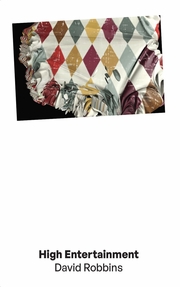| |||||||||||||||||||||||||
ARTBOOK BLOGEventsStore NewsMuseum Stores of the MonthNew Title ReleasesStaff PicksImage GalleryBooks in the MediaExcerpts & EssaysArtbook InterviewsEx LibrisAt First SightThe Artbook | D.A.P. 2025 Gift GuidesArtbook Featured Image ArchiveArtbook D.A.P. Events ArchiveDATE 12/11/2025 192 Books presents Raymond Foye and Peter Gizzi on The Song Cave's new edition of John Wiener’s 'Behind the State Capitol: Or Cincinnati Pike'DATE 12/8/2025 Pure winter glamour in ‘It’s Snowing!’DATE 12/3/2025 Flamboyant poses and melodramatic airs in 'Cecil Beaton's Fashionable World'DATE 11/30/2025 Artbook at Hauser & Wirth Los Angeles Bookstore presents Kelli Anderson and Claire L. Evans launching 'Alphabet in Motion'DATE 11/27/2025 Indigenous presence in 'Wendy Red Star: Her Dreams Are True'DATE 11/24/2025 Holiday Gift Guide 2025: Artful Crowd-PleasersDATE 11/22/2025 From 'Bottle Rocket' to 'The Phoenician Scheme' — the archives of Wes AndersonDATE 11/20/2025 The testimonial art of Reverend Joyce McDonaldDATE 11/18/2025 A profound document of art, love and friendship in ‘Paul Thek and Peter Hujar: Stay away from nothing’DATE 11/17/2025 The Strand presents Kelli Anderson + Giorgia Lupi launching 'Alphabet in Motion'DATE 11/15/2025 Holiday Gift Guide 2025: Stuff that StockingDATE 11/15/2025 Artbook at MoMA PS1 presents Cory Arcangel, Eivind Røssaak and Alexander R. Galloway launching 'The Cory Arcangel Hack'DATE 11/14/2025 Columbia GSAPP presents 'The Library is Open 23: Archigram Facsimile' with Beatriz Colomina Thomas Evans, Amelyn Ng, David Grahame Shane, Bernard Tschumi & Bart-Jan Polman | EVENTSCORY REYNOLDS | DATE 3/14/2024David Robbins talks to Andrew Swant about 'High Entertainment'On the occasion of his eighth book, High Entertainment, published by Reliable Copy, a Bangalore-based, artist-led publishing house, artist and writer David Robbins answers questions lobbed by Milwaukee filmmaker Andrew Swant. The two discuss Robbins’s concept of High Entertainment, a synthesis developed in writings and artworks across three decades.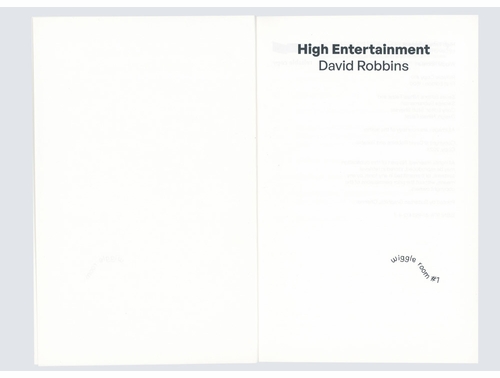 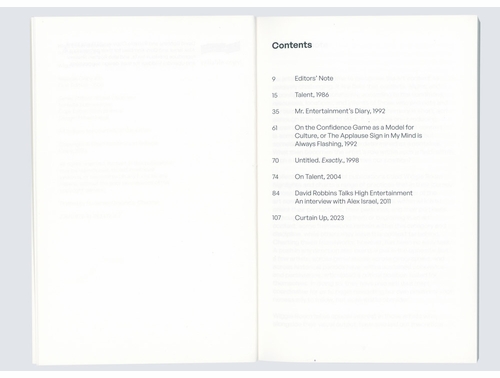 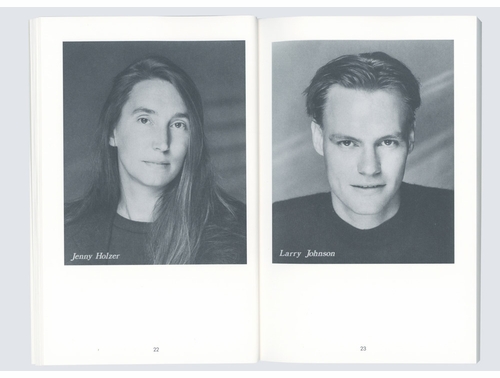 ABOVE: Detail from “Talent,” 1986, a suite of eighteen headshot photographs of contemporary artists. Does high entertainment have a particular look or style? No. It’s an attitude toward communication and audience. And a self-conception. I’ve always been more interested in the artist than in art. The role of the artist has been my material from the first. How can we stretch it? What is the artist’s role today, when art is a branch of the entertainment-industrial complex? So are all artists supposed to go into show biz now? They’re enrolled in it from their first exhibition! Business civilization positions art as entertainment — intellectual showbiz, material-culture showbiz, entertainment for another audience and another wallet than popular culture’s. Historically, artists have engaged entertainment, as subject matter, critically or mockingly. We’re not in that era anymore. We’ve got different tools. Today entertainment, as subject, as vehicle, as pleasurable transaction, can be explored directly by independent-minded people who are beholden to neither art’s value system nor the entertainment industry’s. We’ve never had this kind of production-and-distribution technology at our disposal. Now that we have the opportunity, let’s see what we can invent. What if the artist stops denying art’s function as a kind of entertainment? How does the admission alter the artist’s cultural location? We have much to learn about entertainment. What is entertainment? What is it for? It’s “to entertain,” of course, but what goes on in that transaction? And how might we stretch and shape it? Entertainment research is the order of the day! Are you an “artist” or a one-man entertainment production company? The idea of high entertainment proposes a completely different model of the artist than is pervasive today. But that’s a good thing. The art context is today thoroughly compromised by capitalism. Thankfully, we have options to operating ironically and in Broodthaers’s “bad faith.” 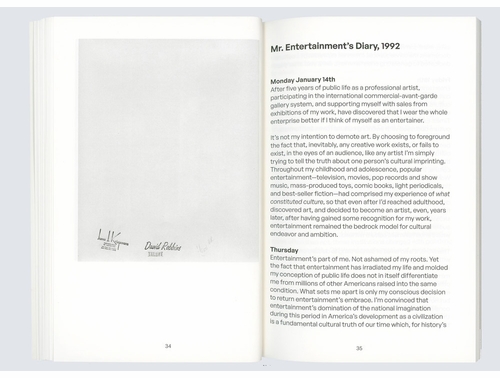 Our era has so many serious problems. Do you ever feel irresponsible promoting entertainment? Of course. Do I strike you as a simpleton? But artists embody complex coordinates. Crises don’t obviate the exploration of all other sides of life. They never have. The first world war rages and Malevich paints squares! |
